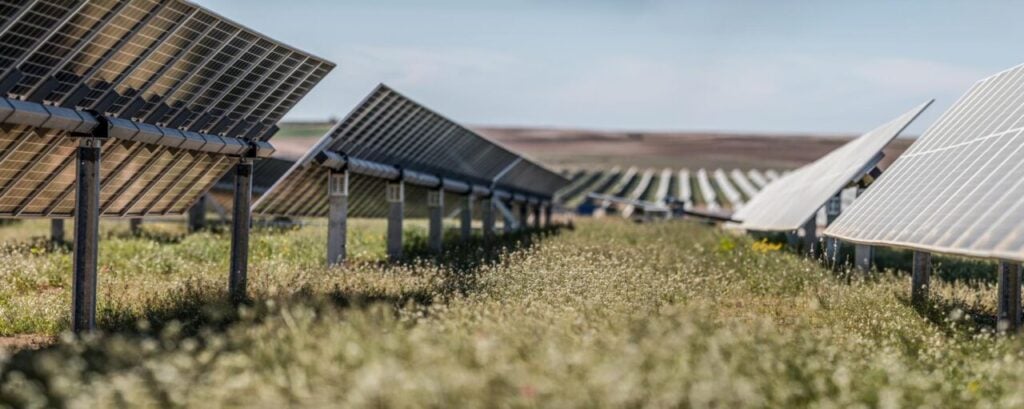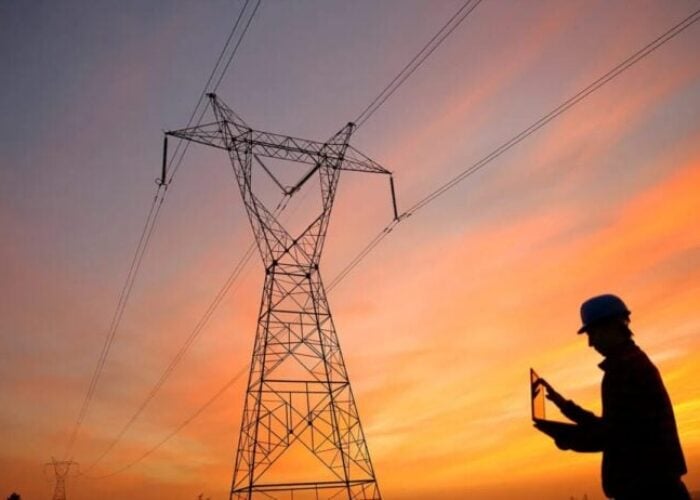
Solar project developer Lightsource bp has secured NZ$267 million (US$162 million) to support the development of its 168MWdc Kōwhai Park solar PV project at Christchurch Airport, New Zealand.
Lightsource bp confirmed last week (15 August) that the financing package had been secured from various international banks, including Westpac New Zealand, Mizuho, China Construction Bank and Intesa Sanpaolo – IMICIB.
Unlock unlimited access for 12 whole months of distinctive global analysis
Photovoltaics International is now included.
- Regular insight and analysis of the industry’s biggest developments
- In-depth interviews with the industry’s leading figures
- Unlimited digital access to the PV Tech Power journal catalogue
- Unlimited digital access to the Photovoltaics International journal catalogue
- Access to more than 1,000 technical papers
- Discounts on Solar Media’s portfolio of events, in-person and virtual
Once completed in 2026, the Kōwhai Park project will power Christchurch’s airport with around 300,000 solar modules. Construction is set to begin later this year. It is being developed in partnership with Contact Energy and will connect to electricity distribution company Orion New Zealand’s 66kV distribution network.
Adam Pegg, managing director of Lightsource bp APAC, believes the financing package represents a “significant milestone” in the project’s development whilst teasing further collaboration with Contact Energy.
“Reaching this point on a project in a new country for the first time is a significant milestone. Through this project, Contact has proven to be a fantastic partner, and we have built a strong relationship. We look forward to working closely together on our future projects,” Pegg said.
Engineering, procurement, and construction contractor CHINTEC has been engaged in constructing the solar PV project, and infrastructure service provider Ventia will deliver all network connection infrastructure.
Mike Fuge, CEO of Contact Energy, confirmed the solar project would be the company’s first-generation asset in the Canterbury region while reiterating its commitment to supporting New Zealand’s energy transition. Contact recently confirmed its plan to build a 100MW/200MWh battery energy storage system (BESS) in South Auckland.
“The solar farm will also be our first-generation asset in the Canterbury region, increasing our geographical spread across the country. This news comes just weeks after our announcement to build grid-scale battery in South Auckland and provides further proof of our investment in renewable energy in Aotearoa New Zealand,” Fuge said.
Christchurch Airport to couple renewable energy technologies for net zero
The solar PV project will also be the initial phase of creating the wider Kōwhai Park Eco-system, which is being developed on 400 hectares of land beside the runways of Christchurch Airport.
The Airport hopes to secure additional investment from businesses and organisations looking to capitalise on developing renewable energy generation projects and support the Airport’s decarbonisation journey.
Christchurch Airport is looking to incorporate several renewable energy technologies to support the local economy and its energy transition. Indeed, its ecosystem plan aims to develop liquid hydrogen production with an on-site electrolyser, electric ground charging for electric vehicle (EV) fleets, vertical farming assets, and data centres. These are often energy-intensive, with the Irish data centre boom consuming around 17% (5.3TWh) of the country’s generated electricity across 2022, for example.
New Zealand’s evolving solar sector
New Zealand’s solar PV sector has seen a steady rise in action in recent months, with several notable developments.
For instance, just last week (14 August), power company Genesis Energy confirmed it had added a 127MWp solar PV project to its portfolio, with the goal of securing 500MW of grid-scale solar by 2028.
The asset will be located near Edgecumbe in the Bay of Plenty and is expected to start generating electricity in 2026. Genesis Energy will secure the project via an agreement with New Zealand-based developer Helios Energy, which will go through in Q2 2025.
In early June, UK renewable energy developer Ethical Power obtained planning consent for a 65MW solar-plus-storage development in Selwyn District, just outside Christchurch, New Zealand.
Buckleys Road Solar Farm is being developed in partnership with KeaX Limited, and features 104 hectares of solar arrays across a 111-hectare site. The operational generating capacity is 100GWh per year.
The country has also seen numerous announcements surrounding agrivoltaics (agriPV). Indeed, solar developer Lodestone Energy revealed in late June 2024 that it would build a 220MW agriPV project on the country’s South Island. The project will cover 340 hectares, around 1.5% of the total Haldon Station farmland, and Lodestone plans to begin construction next year.
In early July, Lincoln University revealed its intention to develop New Zealand’s first ‘high-value’ agriPV solar project, with the 1.5MWp solar installation, comprising approximately 2,800 PV modules, set to “demonstrate how productive land can be optimised to grow high-value horticulture crops while generating commercial-scale solar energy”.
Subject to resource consent, the project will be constructed on a four-hectare parcel of university-owned land adjacent to the campus at the corner of Springs and Ellesmere Junction Road.







